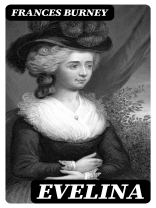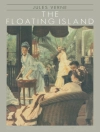Frances Burney’s ‘Evelina’ is a seminal work in the canon of 18th-century English literature, presenting an exquisite exploration of the complexities of female identity, social class, and the intricacies of romantic entanglement. The novel employs an epistolary format, allowing readers to intimately experience the protagonist’s thoughts and feelings as she navigates her way through the treacherous waters of London society. Burney’s prose is characterized by its wit and keen psychological insight, reflecting the societal norms of her time while also subverting them, making ‘Evelina’ not merely a coming-of-age story but a thematic critique of gender and virtue. Frances Burney, a pioneer among female novelists, lived in an era where women’s voices were often marginalized. Burney’s own experiences within London’s high society deeply influenced her writing, as she witnessed the tensions of class and gender firsthand. Known for her sharp observations and nuanced characters, she drew inspiration from her personal life, familial relationships, and societal expectations, which are vividly portrayed in ‘Evelina’. Her subsequent influence on later authors, including Jane Austen and Virginia Woolf, solidifies her literary significance. I wholeheartedly recommend ‘Evelina’ to readers interested in the evolution of the novel and the representation of women’s lives in literature. Burney’s dual mastery of social commentary and character development provides a rich tapestry that captures the essence of the 18th-century woman’s plight, making it an essential read for scholars and casual readers alike.
Sobre o autor
Frances Burney (1752-1840), also known as Fanny Burney and after her marriage as Madame d’Arblay, was an esteemed English novelist, diarist, and playwright. Born in King’s Lynn, England, she was the third of six children to the historian and musician Dr. Charles Burney. Frances Burney gained literary fame in her thirties with the publication of her first novel, ‘Evelina, or The History of a Young Lady’s Entrance into the World’ (1778). Evelina, noted for its vivid depiction of London society and its sharp critique of social structure and courtship, cemented Burney’s reputation as a writer of wit and social insight. Her epistolary novel was praised for its narrative style and the complex, relatable characters that resonated strongly with eighteenth-century readers. Burney’s literary style combines satire with an empathetic portrayal of female experiences, an innovative approach at a time when women authors were not readily accepted. She published several other works, including ‘Cecilia’ (1782), ‘Camilla’ (1796), and ‘The Wanderer’ (1814), all of which contributed to the development of the novel of manners. In addition to her literary accomplishments, Burney’s extensive diaries, chronicling her personal and professional life in Georgian England, provide invaluable insights into the literary culture of the era and the day-to-day experiences of a female author in a male-dominated society. Her work and life left a lasting mark on the literature of her time, with her novels influencing later writers such as Jane Austen. Burney’s contributions to literature and her pioneering role as a female writer have thus solidified her place in the pantheon of English literature.












